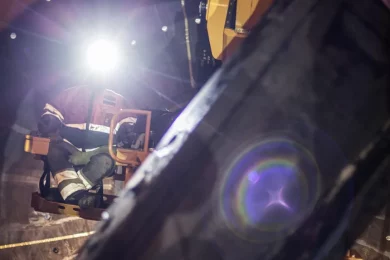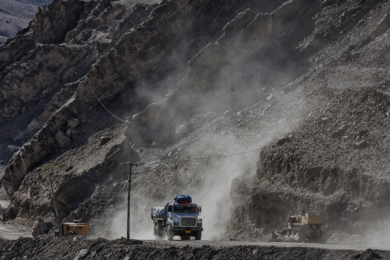Lithium Australia NL (LIT) has successfully developed a hydrometallurgical process, the Sileach™ process, for the recovery of lithium from spodumene, currently the primary source of hard-rock lithium production. The Sileach process is readily adaptable to other silicate minerals also and has been developed to reduce the cost of producing lithium chemicals from materials that have traditionally been roasted, with very high energy costs, to recover the lithium.
Independent laboratory tests of the Sileach process have achieved lithium extractions, from alpha spodumene, of up to 92% in four hours.
The Sileach process has the potential to release the value from stranded lithium silicate deposits – those deposits quarantined by sub-economic grades. It has the ability to transform low-grade spodumene occurrences into viable ore as, due to lower projected operating costs, it is less sensitive to feed grade. This will result in lower cut-off grades for resource calculations, expansion of existing resources without the requirement for further drilling, and greater recovery of metal inventories.
As the lithium is precipitated from solution in the Sileach process, all impurities in lithium silicate feed can be rejected during the production of lithium chemicals. Spodumene, and other silicates, in which impurity concentrations would otherwise render them unmarketable, can now be considered viable process feed.
The Pilbara region (Western Australia), where LIT has MoU’s with Pilbara Minerals and Venus Metals, will likely, in the future produce a range of lithium minerals. This will probably to include micas, clays and low-grade spodumene, which in the past may have been sub economic. All of these materials can be processed with the Sileach process.
The Electra project (Sonora, Mexico) is a farm in and JV in which LIT can earn up to 65% of the project from its partner, TSX Venture listed Alix Resources. The Sileach process, together with other processes will be tested on this project when materials are available.
Lepidolite Hill (Western Australia) is part of the Coolgardie Rare Metals Venture (LIT 80% and Focus Minerals 20%) and has been the subject of intensive metallurgical testing by LIT. The Sileach process is currently being evaluated on material from this deposit in anticipation of much improved leach times, potentially providing for reduced plant size and capital costs for deposits of this type.
The Cinovec deposit, located in the Czech Republic is subject of a non-binding MoU with European Metals Holdings. Lithium in the deposit is primarily hosted by zinnwaldite, a lithium mica, however lithium potentially also occurs in other silicates, which, until now has not been recoverable. The Sileach process has the potential to improve the economics of the Cinovec project by recovering a significant portion of the lithium carried in other silicates and discharged to waste during de-sliming as outlined in the scoping study announced by EMH in May 2015. The scoping study estimated the overall lithium recovery to be 70%. LIT believes that the Sileach process can substantially improve this, potentially adding to the revenue stream.
Lithium Australia Managing Director, Adrian Griffin: “The Sileach process is potentially to the lithium industry what froth flotation is to the base metals industry. In the early 1900s 3 out of every 4 t of ore unearthed from Broken Hill went to waste dumps because the lead could not be separated from the zinc. The massive dumps would have entombed the mines heralding the end of production, had it not been for the advent of froth flotation.”
“Hard-rock lithium faces a similar dilemma with energy intensive processes dictating what can and can’t be economically processed. Only high-grade spodumene concentrates, are viable under such conditions. The low-grade materials, be they spodumene or mica, have, in the past, been destined for the waste dumps. The Sileach process can change that by producing a cost-effective means of processing lower grade, or hitherto difficult to treat materials.”
“The Sileach process will not only provide a commercial opportunity for newly mined materials, but will also unlock the value of lithium minerals discarded in the past.”
“There is no shortage of lithium deposits or concentrating plants in the world but there is a massive shortage of lithium carbonate and hydroxide plants and Lithium Australia is focused on filling that gap with its leading edge environmentally friendly processing technologies.”










